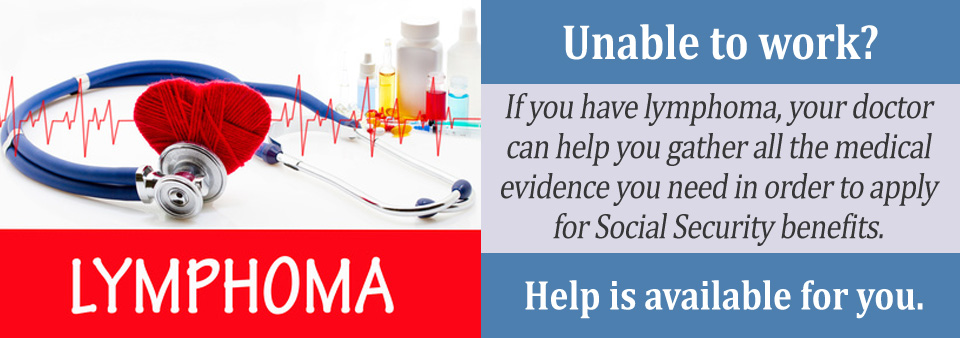If you have lymphoma you may be eligible to receive Social Security disability benefits. Lymph nodes can grow in the spleen, bone marrow, lymph nodes, and thymus gland. If left undetected for a prolonged period, the cancer can develop into a life-threatening condition that causes patients to stay home to receive treatments.
Another serious negative impact of lymphoma that because it compromises the immune system, which means other diseases and illnesses can easily develop to ravage the body.
Workers that have to stay home to fight back against lymphoma might be eligible to receive financial assistance from a program run by the Social Security Administration (SSA).
Turn to the SSA for Financial Assistance
Debilitating fatigue, acute shortness of breath, and a persistent high fever combine to force patients of lymphoma to take an extended leave of absence from work. The result is a crushing blow to family finances.
Between having to come up with money for food and paying off costly medical bills, many disabled workers have nowhere to turn for help. However, the SSA developed the Social Security Disability Insurance (SSDI) program to provide financial relief for eligible disabled American workers.
The SSA does not hand out money like it is candy. Applicants must pass a series of evaluations to qualify for SSDI benefits. Using a guide called the Blue Book, the SSA requires applicants to meet the symptoms listed for lymphoma.
The disease falls under section 13.0 of the Blue Book, which is referred to as Malignant Neoplastic Diseases. SSDI applicants need to submit convincing documentation to presents evidence of the presence of debilitating lymphoma symptoms. A diagnosis signed off by a qualified physician is a good start. You also need to submit invoices for cost of medical treatment and rehabilitation.
Can Medicare Coverage Help?
If you receive SSDI assistance and you have turned 65, you might face a dilemma concerning which safety net program to use for financial relief. The answer is SSDI, as long as you remain qualified to receive financial help from the SSA.
SSDI offers comprehensive financial assistance for daily expenses and costly medical bills. Medicare is a program that covers the cost of insuring the health of seniors. SSDI recipients have no choice but to wait for Medicare to kick in because the SSA prevents SSDI recipients from receiving Medicare assistance for 24 months after qualifying for coverage.

Returning to Work
Lymphoma is one of the few cancers that typically reverse course because the symptoms eventually diminish in severity. If you have survived lymphoma, but you still retain some of the milder symptoms, the job that you lost might not make a good fit during recovery.
The SSA offers work transition assistance in the form of two programs called Plan to Achieve Self-Support (PASS) and Ticket to Work. You receive vocational training to develop the skills you need to transition smoothly into a different job. The back to work programs also provides financial resources for disabled workers to fund job searches.
Request a Free Case Evaluation
The SSDI application process is full of hurdles. However, you do not have to fight the good fight alone. An experienced Social Security attorney can help you submit a persuasive SSDI application by conducting a free case evaluation. By completing a free case evaluation, you should discover the weak elements of your SSDI application.
Schedule a free case evaluation today with a highly rated Social Security lawyer.